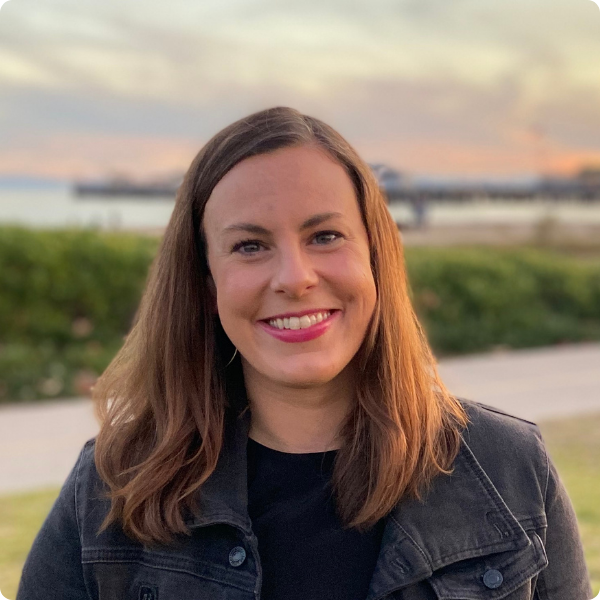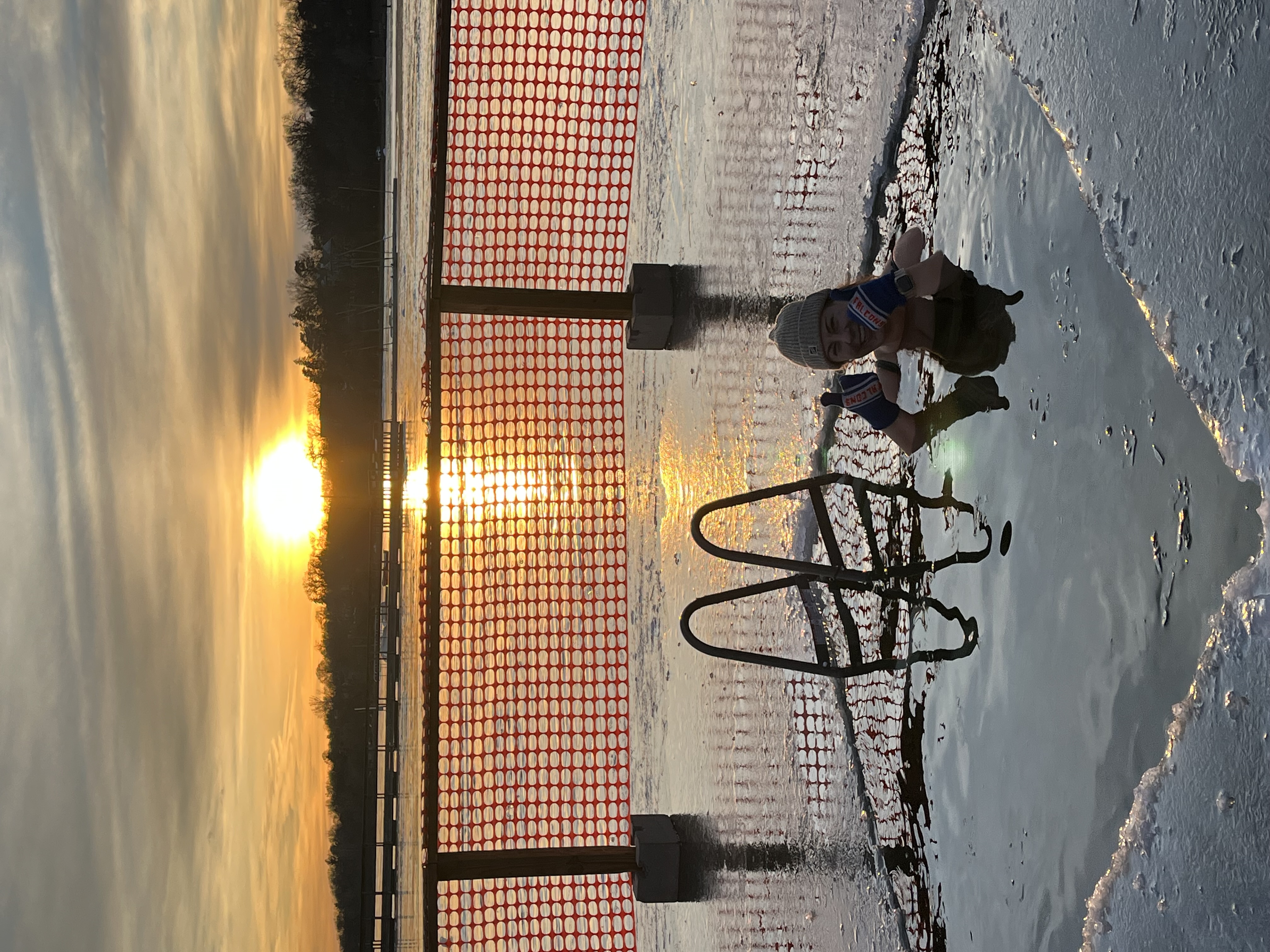Hailing from eastern Pennsylvania, Haley Kimmet Teopaco found her community in Minneapolis, where she loves its social values, parks and yes, the cold. Haley grew up with a significant hearing loss in a completely hearing family. She was diagnosed at age 2, got hearing aids and spent most of her childhood in intensive auditory-verbal therapy in mainstream schools. “As a result, I spent a lot of my time focused on learning to be hearing without actually being hearing and it led to a lot of internal debate around internalized ableism as I got older and became familiar with these concepts. My eyes started to really open when I became friends with other DHH teens through a youth leadership program via AG Bell. I've learned that while I don't agree with AG Bell's philosophies, I can accept that a good thing came to me because of this youth leadership aspect.” Her world opened up when she got involved in a Washington, DC-based policy internship during college and she was able to see similar themes between herself in others with deeply diverse backgrounds, disabilities and world views.
For her whole life, Haley was told that she acquired her hearing loss after an illness when she was around a year old, but she recently learned that she had Connexin 26, the "deaf gene" and “it was so interesting how I sort of re-hashed my childhood in light of this information - that I really was a part of the deaf community all along and not just a late addition.”
Haley graduated from college with a degree in public policy and ultimately got her Master of Public Affairs from the University of Minnesota's Humphrey School in 2020. “After many years of consideration, I've settled on "deafish" or verbally deaf as a label but sometimes use hearing loss or hard of hearing to identify since they are well recognized but don't always feel like the most apt descriptor of my experience since they are pretty broad. Nowadays, I usually say I spent my childhood learning to be hearing and my adulthood learning to be deaf. It's really been a journey of reconciling some of the decisions made for me and the decisions I want to make for myself.” While Haley’s native language is spoken English, she learned “passable ASL that is really signglish and I love the expansion of communication and connection it's given me.” She has since switched to a hearing aid in her left ear and a cochlear implant in her right ear, though she finds herself going "bare" more frequently and doesn't use her CI much.
Haley has been working for A Great Day Farm, a free accessible recreational facility based in Northfield. Its focus is to support recreation & community-building opportunities for people with disabilities, especially adults with more significant support needs. As the executive director, Haley is focused on building a sustainable growth plan to move the organization from a private operating foundation started by a family to a long-term public charity. “It's really exciting and compelling and feels like such a perfect blend of creativity & challenge, with me gleaning skills and learnings from my past roles in nonprofit, higher ed and corporate strategy. I spend a lot of my time building bridges between different audiences and potential partners.”
“I absolutely love the sheer diversity of tasks and goals - there's something new & interesting to do every day. I'm always learning, refining, and implementing new approaches as I acclimate to a new working environment. I've long seen the power of building projects & systems to meet the greatest possible need, which in my career and perspective has been cross-disability-related. If you can successfully orient programs to center cross-disability needs from the beginning, your program is better for it. Change has never been very hard for me to engage in - and I really credit that to being a deaf gain. I'm always focused on understanding my context, building connections with those who communicate differently than I do, and trying different ways to reach my goals. While I feel innately good at making changes, the energy required to do this is pretty significant and takes a toll. I'm always inspired by leaders, especially those who are open with their disabilities, who find ways to create impact but also make clear the need for reprieve, for restoration and for pushing against grind culture.” In her day-to-day work, she gets to connect with many folks who live with intellectual & developmental disabilities and the family members, staff, PCAs that support them to live their best lives in the community. “They are such an integral part of our community fabric and yet remain very underserved, unrecognized for the gifts and strengths they bring to the community. They give me a strong sense of purpose in creating a world that is human-rights oriented and better for all.”
“Despite all these years of working to accept my deafness as a point of pride and strength, it can be tough to help others understand my experience. I don't hide my hearing aids or CI - typically I have some form of sparkly colored ear molds and enjoy wearing my hair back. Sometimes people aren't aware of the complexities of living in the gray between deaf & hearing worlds and I don't always have the time or energy to explain this fully.” She uses a mix of accommodations, depending on the environment she’s in, ranging from auto-captions for an informal webinar, CART captions for a jargon- or concept-heavy workshop, ASL interpreting for a loud networking session, a caption app for phone calls, open captions at the movies, etc. “I'm always changing it up! Sometimes I enjoy working my ears more & lip reading but I really have to plan my circumstances to fit me, usually involving a good night's sleep and a familiar friend in a new setting!”
“I love working and find that it's helped me hone in on the skills that my deafhood has brought me. I don't think I'd be nearly as effective an employee without the experiences and wisdom that navigating my deafness/disability have gifted me. Do I get frustrated/tired/exasperated, hell yes! But, in the long arc, I have felt so fortunate to live life in the unique way that I have. I know there's many different schools of thought on disclosure in the interview process & the workplace and of course, situations where your current financial situation may dictate your decision more than what your personal preference is. But, on the whole, I've felt much better when I integrate my deafhood/hearing or lack of it as part of my interview stories in relation to resilience, to navigating challenges and to coming up with better, more community-driven solutions.”
When not working, Haley can be found on the water. “I grew up competitively swimming and always felt so fluid and at home when I was in the pool or a body of water.” She’s also big on bike picnics, estate sales, and animals, especially dogs & whales. She lives with her family in South Minneapolis.
The #CanDoAnything campaign showcases people who are deaf, deafblind, or hard of hearing at work, giving them an opportunity to share what they do at their jobs and explain how communication access works for them. This campaign shows what our community can do, which is anything!

